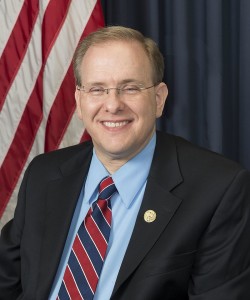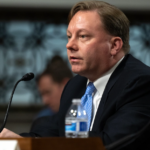
A lawmaker on the bipartisan Cyberspace Solarium Commission said Wednesday there’s a “decent shot” Congress will pass legislation this year on the group’s recommendation to reestablish key cyber leadership roles at the White House and State Department. Rep. Jim Langevin (D-R.I.) told attendees during a virtual discussion with law firm Venable the commission is targeting the next National Defense Authorization Act as a key vehicle for passing high priority recommendations included in the group’s recently released final report. The Cyberspace…

 By
By 











